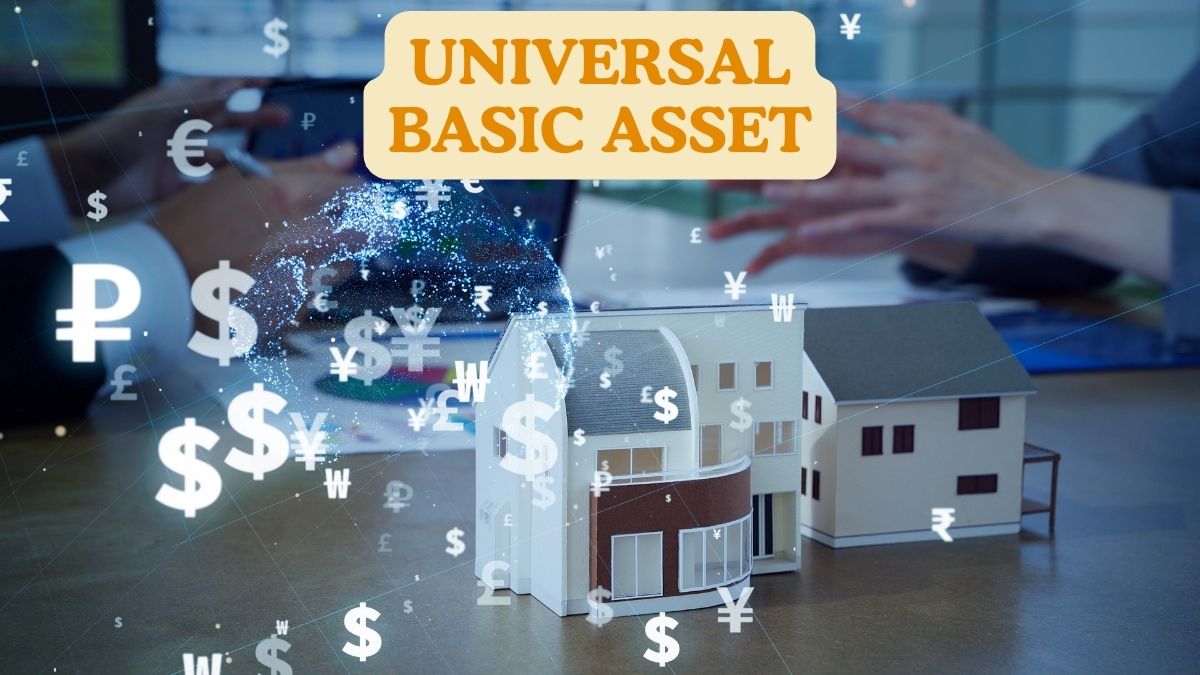Introduction
The notion of Universal Basic Asset (UBA) provides a ray of light in a society plagued by economic inequality by guaranteeing everyone access to necessities including shelter, education, healthcare, and financial security. UBA is more than just a theory; it’s a blueprint for a world in which land, natural resources, intellectual property, and digital platforms are all held in common and used for the greater good. This article delves into the key ideas of UBA, its goal of reducing inequality, and how it differs from UBI.
Definition of Universal Basic Asset (UBA)
The supply of a minimum standard of living to all citizens is the essence of universal basic asset. Everything from shelter to education to healthcare to the financial security necessary to succeed in today’s society falls under this category of resources.
Objective of Reducing Inequality
UBA’s main objective is to lessen social disparities. It aims to make the economy and society more accessible to people of all backgrounds by creating a level playing field.
Contrasting UBA with Universal Basic Income (UBI)
It is crucial to differentiate between UBA and UBI. In contrast to universal basic income (UBI), which offers unconditional cash transfers, universal basic access (UBA) prioritises the expansion of the “commons.” Knowledge, culture, land, water, air, and digital infrastructure are all examples of publicly available resources.
The Basics of Universal Basic Asset
Shared Resources in UBA
The core tenet of UBA is the pooling of scarce means. These are resources that the general public owns and not a privileged few. The term refers to physical space as well as intangible assets like ideas and software.
Core Elements: Housing, Education, Healthcare, and Financial Stability
Housing, education, healthcare, and economic security are the bedrock of the UBA. The foundation of this idea is guaranteeing that these services are available to all residents.
UBA’s Vision for a Fair and Sustainable Future
Equitable Distribution of Economic Advancement
UBA’s mission is to promote the equitable distribution of economic growth. Its goal is to stop a small number of people from controlling the majority of the wealth.
Inclusive Benefits of Technological Progress
UBA maintains that the benefits of technical innovation should be made available to all people as technology continues to transform our environment. It argues against the notion that only a select few should enjoy the advantages of technological progress.
Challenging Concentration of Wealth
The creation of UBA is a reaction to the widening income gap in society. It’s a radical idea that proposes a more equitable distribution of wealth rather than its current, top-down model.
“Commons” in UBA
Expanding Shared Resources
In UBA, the “commons” is a comprehensive idea. It aims to increase people’s access to common resources and foster a feeling of communal duty and accountability.
Resources Accessible to Everyone
Resources such as information, culture, geography, hydrology, atmosphere, and digital infrastructure are all regarded as common property under UBA. This all-encompassing method guarantees that nobody is left behind.
Customization and Flexibility
Acknowledging Diverse Needs and Preferences
UBA appreciates the fact that everyone has unique wants and requirements. It’s not a cookie-cutter approach, but rather a system that takes into account the individual differences of its users.
Personalization of Utilization
When people are given the option to use these communal resources in a way that best suits their needs, the result is a more tailored and efficient application of the resources’ potential.
VI. The Informal and Conversational Tone
Engaging the Reader
It’s crucial to keep the reader interested when talking about UBA. We’re not talking about some abstract theory here; rather, it’s a hopeful outlook on the future that everyone can get behind.
Rhetorical Questions and Metaphors
Consider using rhetorical questions to emphasise the importance of UBA. Think of it as progress towards a world where everyone has the same opportunities.
Conclusion
The notion of a universal basic asset has the power to revolutionise human life as we know it. It’s a dream of a world in which everyone is provided with the necessities for a life of respect. We welcome UBA because it represents the possibility of a more equitable and empowering future for all people. A more equitable and welcoming society is at the heart of UBA’s message. It foresees a society in which everyone has equal access to common resources and complete control over their own lives. As we look ahead, UBA provides a compelling way to lessen disparities and give more people a voice in the world at large.
FAQs
1. How is UBA different from UBI?
While UBI refers to unconditional cash transfers, UBA emphasises the provision of public goods including housing, schools, and hospitals.
2. What are some examples of shared resources in UBA?
Land, natural resources, intellectual property, and technological infrastructure are all considered shared resources under UBA.
3. How does UBA address diversity in individual needs?
UBA recognises the need of accommodating a wide range of users by allowing them individualised service.
4. What is the relationship between UBA and economic progress?
By restricting the accumulation of wealth, UBA seeks to ensure that more people are able to share in the rewards of economic growth.
5. How can UBA lead to a more equitable society?
UBA helps create a more just and equitable society by making sure that everyone has access to basic necessities.









